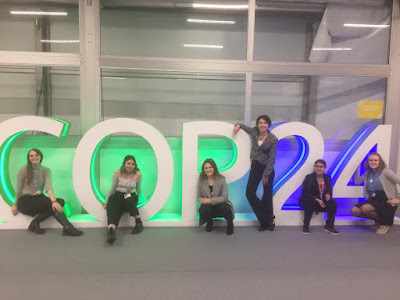Skip to main content
Why Women’s Reproductive Health Needs to be Discussed in Terms of Climate Change
On December 11th, 2018, Gender Day at COP24, it has been a common message that women play a crucial role within their communities. In most countries, women take on the tasks of watching their children, cooking, walking many miles to obtain clean water, and much more. As a result of their roles within their communities, these women often do not have the ability to act for themselves.
 |
Hwei Mian Lim
|
Hwei Mian Lim, who works with The Asian-Pacific Resource and Research Centre for Women (ARROW), is advocating for women’s reproductive health and rights to be discussed in terms of climate change. During her session, “The Women of Sarawak and Mindoro (The Invisible Battle on Climate Change)”, she uses victim’s stories to emphasize how climate change affects women’s sexual and reproductive health. By using stories from victims of climate change, Hwei is able to connect her audience to the idea that women have a right to reproductive health. She shares the story of Chanpin, a 38 year old who lives in Lao PDR, to explain the effects of climate change on women. According to the story, “Lao PDR is experiencing unusually prolonged and devastating drought seasons, as a result of climate change...Chanpin...lost her ninth child [in utero] from walking long distances to collect water…”. By addressing the topic of climate change affecting women’s reproductive health, women like Chanpin will potentially gain access to sexual and reproductive health (SRH) services. The topic is still fairly new to discussion and the main source of evidence of women’s struggles come from stories. We must raise awareness to gain a better understanding on how women’s reproductive health and rights are affected by climate change.



Comments
Post a Comment